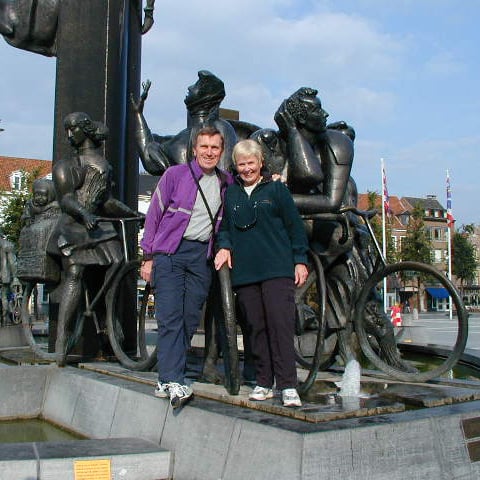New Breakthrough Therapy for Metastatic Melanoma Receives FDA Approval
A first-of-its-kind cellular immunotherapy pioneered at Moffitt Cancer Center is now available for patients with advanced melanoma. It’s called TIL, short for tumor-infiltrating lymphocyte therapy. The one-time T-cell therapy infusion uses a patient’s own immune cells to fight their cancer. It’s the first Food and Drug Administration approval of a cell therapy for solid tumors.
Clinical trial results show the one-time therapy has a 36% response rate in patients with metastatic melanoma, a good outcome considering this therapy was evaluated in patients whose disease progressed after receiving treatment with other types of immunotherapy. Responses have also been durable for patients, lasting well over two years.
TIL therapy takes advantage of the immune system’s ability to seek out and fight cancer cells. Melanoma tumors are surgically removed and then sent to a manufacturing facility where the immune cells, known as tumor-infiltrating lymphocytes, are removed and grown to billions in number. To make room for the new army of immune cells, patients receive chemotherapy to temporarily deplete their immune system before receiving the TIL infusion. The entire process takes about a month and a half from surgery to infusion.

“This breakthrough is the next generation of cellular immunotherapy and provides a much-needed option for metastatic melanoma patients. TIL therapy is the most reliable option after traditional standard-of-care therapies have failed,” said Amod Sarnaik, M.D., a surgical oncologist who has led several TIL therapy trials for melanoma at Moffitt.
The newly approved TIL therapy is for metastatic melanoma patients who have previously been treated with a PD-1 blocking antibody, BRAF inhibitor or MEK inhibitor.

Mary Moulds enjoys traveling to destinations like Rome.
Mary Moulds of Venice, Florida, is grateful to know that TIL therapy will be more widely available to melanoma patients like herself. It started with a small, brown freckle, rough to the touch, on her arm near her watch. Her husband could barely see it, but the retired nurse knew it wasn’t normal. The dermatologist wasn’t concerned but ordered a biopsy to be safe. It was melanoma.
A few years later, Moulds developed two more bumps on her arm. Her dermatologist referred her to Moffitt, where they also found a spot on her lung and lymph node under her arm. They discussed a clinical trial for TIL therapy for advanced melanoma. Candidates had to have a strong heart, which was no problem for the then 70-year-old, an avid cyclist who has ridden around the world with her husband on a tandem bike. She was religious about applying sunscreen to her fair skin and wearing protective clothing while riding.

Dave and Mary Moulds enjoy traveling and biking around the world.
After undergoing the TIL process, Moulds experienced setbacks from the immune-modulating therapy given afterward to stimulate the TIL activity. But she persevered. Three months later, scans showed her tumors had shrunk. Eventually, the tumors disappeared. Today, she receives annual scans with no evidence of disease.
“When you receive a cancer diagnosis, you suddenly realize life is very precious,” said Moulds, 80. “Much to our kids’ chagrin, we accelerated our bucket list and made sure we got through everything we wanted to do in our life. It was like a get out of jail card. We’re very blessed. And now we’ve almost been around the world cruising.”
Moffitt is already working on the next generation of TIL therapies, not only for melanoma but also for other solid tumors such as lung and head and neck cancers. Several clinical trials are currently accruing patients.
“Moffitt is a leader in cellular immunotherapy. We want to continue our success and improve how TIL therapy is made and administered,” Sarnaik said.



